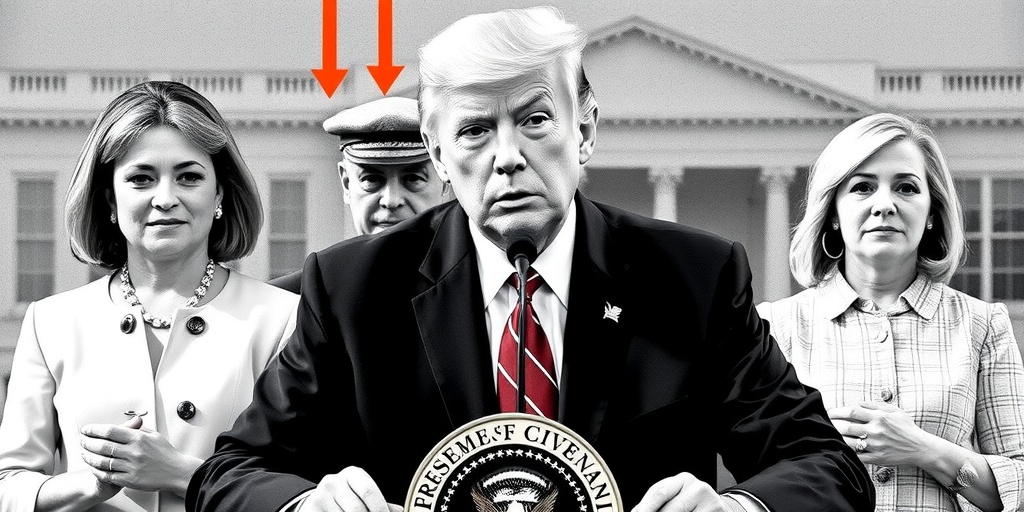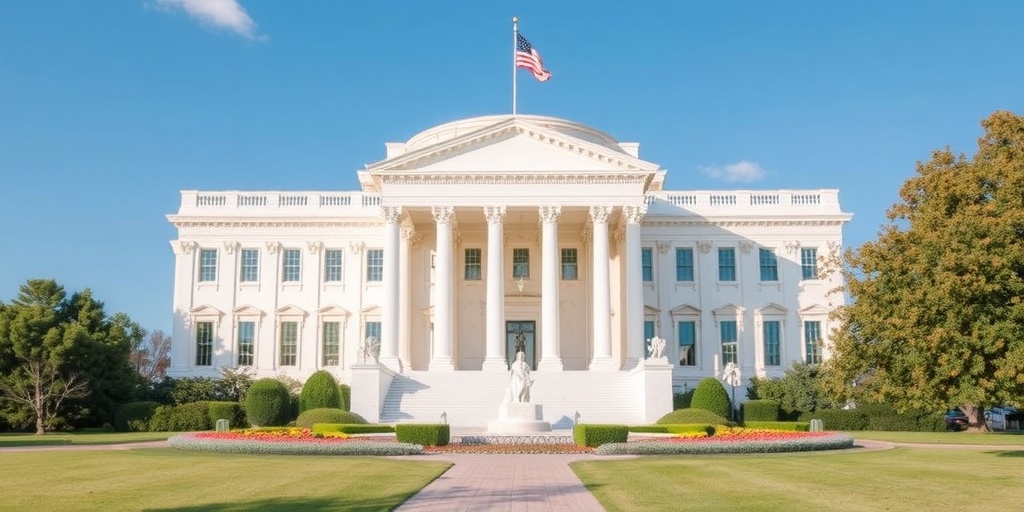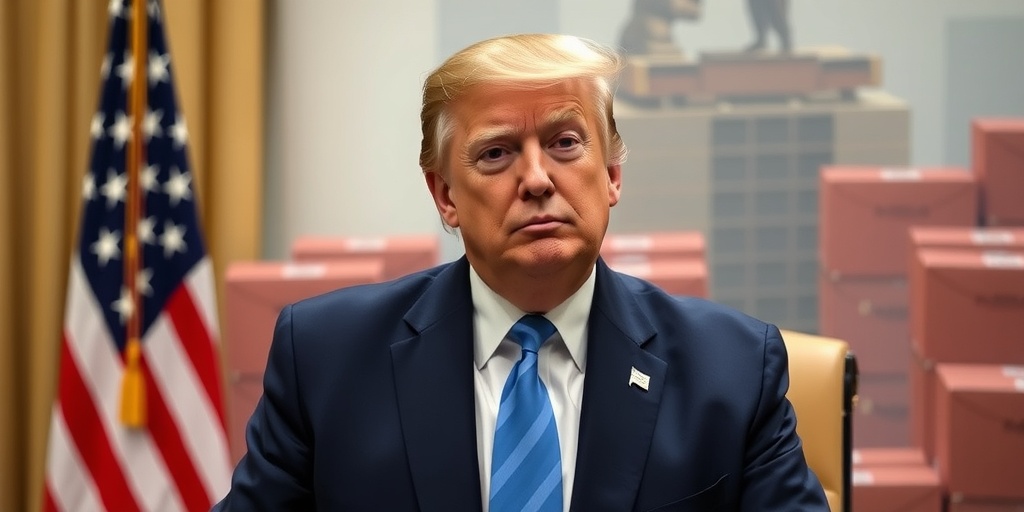Now Reading: Democrats Sue President Over Election Executive Order
-
01
Democrats Sue President Over Election Executive Order
Democrats Sue President Over Election Executive Order

Democratic Party Files Lawsuit Against Trump’s Executive Order on Voting Reforms
In a significant and unified response, nearly every faction of the Democratic Party has come together to file a lawsuit against the Trump administration, challenging a recent executive order that aims to mandate documentary proof of citizenship and implement various electoral reforms. This legal action, lodged in the Federal District Court in Washington, D.C., portrays President Trump as having substantially overstepped his constitutional authority, ostensibly to skew the electoral landscape in his favor and disadvantage his political opponents.
The 70-page lawsuit names President Trump alongside several members of his administration as defendants. It articulates that the executive order is steeped in the president’s personal grievances, conspiracy theories, and a denial of election legitimacy. As stated in the lawsuit, “nowhere does it (nor could it) identify any legal authority he possesses to impose such sweeping changes upon how Americans vote.” The document underscores a pivotal point: the President lacks the constitutional mandate to control or regulate election procedures.
The Democrats’ legal claim highlights the Elections Clause of the Constitution, a fundamental aspect of their argument. This clause expressly empowers states to determine the “times, places, and manner” of their elections, granting them autonomy to set rules, oversee voting processes, and take measures to combat fraud. Congress is also granted the ability to legislate federal voting laws, but according to the lawsuit, the executive order in question does not align with these established legal frameworks.
As the Democratic Party grapples with effective strategies to counter what they perceive as an alarming expansion of executive power under the Trump administration, this lawsuit stands as an early demonstration of solidarity across the party ranks. It illustrates a concerted effort, signaling that the Democrats continue to prioritize the safeguarding of democracy as a crucial tenet of their political identity. The party is keenly aware that impending elections, particularly the 2026 midterm elections, hinge significantly on public perception of electoral integrity.
Earlier in the year, Democratic organizations took legal action against the Trump administration with regards to its attempts to assert control over the Federal Election Commission. Moreover, they had previously aligned themselves with a lawsuit contesting newly enacted voting regulations in Georgia. This current litigation presents a collective pushback against a pattern of perceived overreach by the administration.
The executive order that sparked this widespread legal challenge was signed by President Trump just last week. It seeks to impose a strict requirement for documentary proof of citizenship for individuals wishing to register for federal elections. Furthermore, it establishes a national deadline for mail-in ballots by threatening to withhold federal funding from states that accept ballots postmarked before Election Day but arriving afterward. This stipulation is particularly contentious, especially since numerous states, at least 17, have provisions allowing late-arriving ballots to be counted, reflecting different electoral practices across the country.
Additionally, the executive order aims to enable federal agencies, including the newly instituted Department of Government Efficiency helmed by Elon Musk, to access state voter rolls for verification purposes, ostensibly to ensure compliance with federal requirements.
The lawsuit points out that this directive encroaches on congressional authority, reinforcing that Congress has continuously acknowledged that the deadlines for ballot receipt are matters reserved for state legislation. It also references a statement by Supreme Court Justice Brett Kavanaugh, appointed by Trump, reaffirming that allowing absentee ballots sent by Election Day but received afterward is a “longstanding ‘policy choice’ reserved to the states.”
Furthermore, the lawsuit argues that the executive order could effectively disenfranchise a significant number of voters. According to a 2023 study by the Brennan Center for Justice, nearly 21.3 million Americans lack easily accessible proof of citizenship. This statistic underscores the potential for widespread disenfranchisement, an outcome that civil rights advocates argue is antithetical to the principles of representative democracy. In states like Washington, which predominantly conducts elections by mail, data shows that more than 250,000 ballots postmarked on time were still delayed in arriving after Election Day in the previous presidential election cycle.
The lawsuit emphasizes the overarching concern that the executive order does not serve the public good. “Each condition will foreseeably disenfranchise eligible electors, which is incompatible with representative democracy,” the document states.
The legal challenge is spearheaded by the Democratic National Committee in conjunction with several key party organizations, including the Democratic Senatorial Campaign Committee and the Democratic Congressional Campaign Committee. Senate Minority Leader Chuck Schumer and House Minority Leader Hakeem Jeffries are also integral to this collective effort.
In a comprehensive memo unveiling the lawsuit, the groups involved issued a powerful joint statement denouncing the executive order. They described it as an "unconstitutional power grab" that undermines vote-by-mail initiatives, jeopardizes sensitive personal information, and complicates state efforts to maintain free and fair elections. They accused Trump and the Department of Government Efficiency of attempting to legitimize debunked conspiracy theories and lay the groundwork for discarding valid votes that fail to align with their preferred electoral outcomes.
This legal action marks a pivotal moment in the ongoing struggle over the control and integrity of the electoral process within the United States, as Democrats rally around a common cause aimed at protecting voting rights and upholding the principles of democracy.
Stay Informed With the Latest & Most Important News
Previous Post
Next Post
-
 01New technology breakthrough has everyone talking right now
01New technology breakthrough has everyone talking right now -
 02Unbelievable life hack everyone needs to try today
02Unbelievable life hack everyone needs to try today -
 03Fascinating discovery found buried deep beneath the ocean
03Fascinating discovery found buried deep beneath the ocean -
 04Man invents genius device that solves everyday problems
04Man invents genius device that solves everyday problems -
 05Shocking discovery that changes what we know forever
05Shocking discovery that changes what we know forever -
 06Internet goes wild over celebrity’s unexpected fashion choice
06Internet goes wild over celebrity’s unexpected fashion choice -
 07Rare animal sighting stuns scientists and wildlife lovers
07Rare animal sighting stuns scientists and wildlife lovers




















